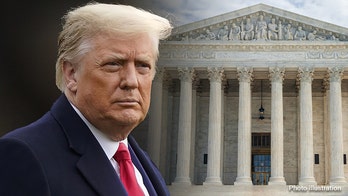Former President Donald Trump's defense is seeking a mistrial after pornographic actress Stormy Daniels provided graphic details about an alleged sexual encounter in her testimony.

Former President Donald Trump's defense attorneys have filed a motion for a mistrial amidst the testimony of pornographic actress Stormy Daniels in his criminal trial on charges of falsifying business records. Defense attorney Todd Blanche argued that Daniels' testimony on Tuesday was prejudicial and inflammatory, including details not relevant to the case.
Blanche asserted that the prosecution was attempting to inflame the jury with Daniels' testimony, which he claimed had nothing to do with the alleged hush money payments to Daniels. He argued that Daniels had been trying to sell her story about a consensual sexual encounter since 2016, and that her testimony on consent "makes it impossible to come back from" in a fair way for Trump.

Blanche requested that the court either declare a mistrial or exclude or severely limit Daniels' testimony, deeming it "lurid and explosive." He expressed concern that the jury would be unable to focus on the actual charges against Trump.
However, prosecutor Susan Hoffinger countered that the defense had been fully informed of Daniels' testimony in pre-trial motions. She argued that her testimony was probative to Trump's intent and that the defense was merely attacking Daniels' credibility.
Judge Juan Merchan, presiding over the trial, initially expressed concerns about the level of detail in Daniels' testimony. He urged prosecutor Hoffinger to move the proceedings along. However, he ultimately denied the defense's motion for a mistrial, stating that he was doing everything possible to control the witness.
During a lunch break, Trump himself took to his Truth Social account to denounce the prosecution, claiming that they had "gone too far" and that a mistrial was warranted.
The defense's motion for a mistrial is a significant development in the trial. If granted, it would effectively end the proceedings. However, the judge's denial of the motion suggests that he believes Daniels' testimony is relevant and admissible. The trial is expected to continue with further testimony from Daniels and other witnesses.










